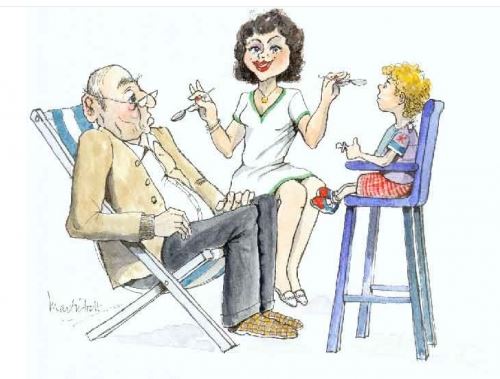What Is the Sandwich Generation?
The sandwich generation consists of middle-aged individuals who are pressured to support both aging parents and growing children. With the obligation to care for their aging parents – who may be ill, unable to perform activities of daily living or in need of financial support – and children, who require financial, physical and emotional support. The trends of increasing life spans and having children at an older age have contributed to the sandwich generation phenomenon.
The whole family feels stress and pressure that is put upon them to do everything for everyone. They feel guilty and overwhelmed most of the time. They suffer from exhaustion and get sick more frequently than non-caregivers. A new role on the stage of life for which no one can ever rehearse. This presents extraordinary challenges to a parent or an aging parent.
To lose control of one’s life – even the little things – can be shocking and frustrating.
As more baby boomers become both sandwich generationers and seniors, the need to understand aging dynamics and family relationships increases dramatically.
For one thing, improvements in medical science have increased life expectancy. People are living longer and requiring care for longer periods of time. The length of time people can live with a debilitating illness before death has increased. The average life expectancy in Canada is 82 years old. Only 50 years ago it was 69. Everyone is going to be involved some way, somehow in elder care. If not today, then tomorrow.






















